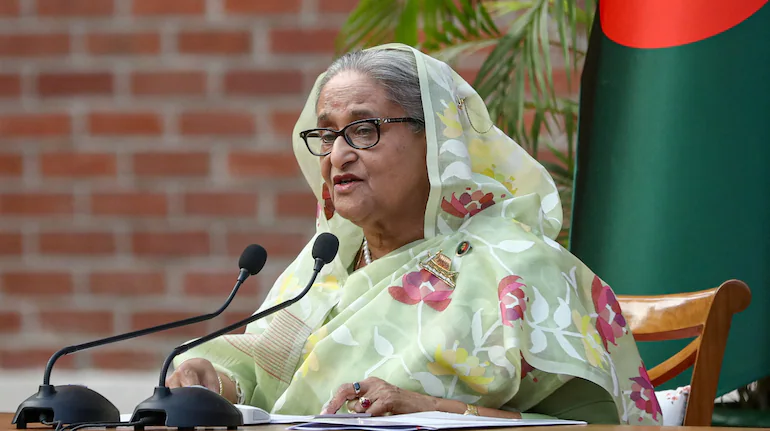Is There A Role of Pakistan and China in Sheikh Hasina’s Departure?

News Mania Desk/6th August 2024
Recent developments suggest that the escalating protests and subversion leading to former Bangladeshi Prime Minister Sheikh Hasina’s flight from the country were significantly influenced by Pakistan’s Inter-Services Intelligence (ISI) and its Chinese ally. The information points to the involvement of the Islami Chhatra Shibir (ICS), the student wing of the hardline Jamaat-e-Islami Bangladesh, in turning the protests over job quotas into a broader movement against Hasina.
The ICS, known for its anti-India stance, has been pivotal in inflaming the streets and aiming to establish a regime more favorable to Pakistan and China. This would create a hospitable environment for anti-India terror groups that were previously targeted by Hasina’s Awami League government.
Intelligence inputs suggest that the ICS had meticulously planned the nationwide violence months in advance. An official revealed that earlier this year, Jamaat-e-Islami, backed by the ISI, received significant financial support to destabilize Hasina’s government. A substantial portion of this funding is believed to have come from Chinese entities operating in Pakistan.
Despite Hasina’s efforts to maintain balanced relations with both India and China, her even-handed approach did not sit well with Beijing. Leading figures within the ICS managed to garner support from Western-affiliated NGOs by employing the rhetoric of democracy and human rights, further complicating the situation.
Indian intelligence agencies have long monitored the ICS due to its involvement in anti-India activities, including promoting a jihadist agenda in Indian territories adjacent to Bangladesh. The ICS operates closely with the ISI-backed Harkat-ul-Jihad-al-Islami (HuJI), a Pakistan-based terrorist group with a presence in Bangladesh. Visual evidence has surfaced showing ICS members undergoing training in Afghanistan and Pakistan. An intelligence officer highlighted that the ultimate goal of Jamaat and the ICS is to establish a Taliban-style government in Bangladesh, with ISI support becoming more overt following the strengthening ties between the Indian and Bangladeshi governments.
Reports indicate that China’s Ministry of State Security (MSS) has also played a role in this turmoil. Beijing, wary of Hasina’s balanced diplomacy, would prefer a government in Dhaka influenced by Pakistan, better serving China’s strategic interests. An intelligence source noted that the MSS has become more proactive recently, exemplified by a propaganda video warning of foreign spies, an unusual move for the MSS.
In conclusion, the involvement of Pakistan’s ISI and its Chinese patron in the recent upheaval in Bangladesh underscores a strategic play to reshape the political landscape in Dhaka. The coordinated efforts of the ICS, supported by significant financial backing and strategic training, highlight the broader geopolitical maneuvers at play, aiming to install a government more aligned with Pakistani and Chinese interests. This shift not only destabilizes Bangladesh’s internal politics but also poses significant implications for regional stability and India’s security concerns.






